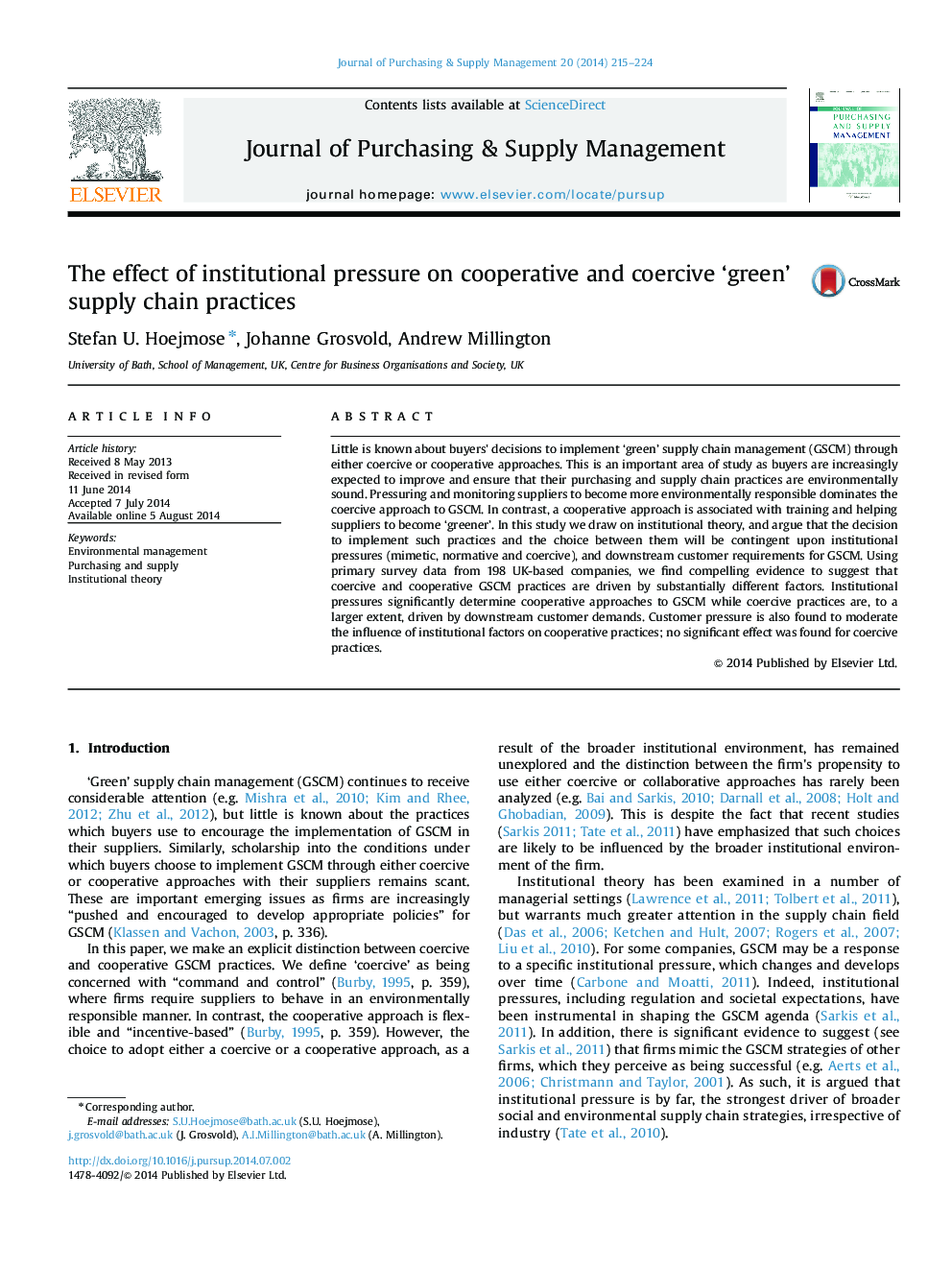| Article ID | Journal | Published Year | Pages | File Type |
|---|---|---|---|---|
| 1020747 | Journal of Purchasing and Supply Management | 2014 | 10 Pages |
•We examine firms coercive and cooperative ‘green’ supply chain management (GSCM) practices.•We explore the conditions under which firms respond to institutional pressure for GSCM.•Our analysis is based on primary survey data from 198 UK-based companies.•Institutional pressures significantly drive cooperative approaches to GSCM.•Coercive practices are driven by downstream customer demands.
Little is known about buyers׳ decisions to implement ‘green’ supply chain management (GSCM) through either coercive or cooperative approaches. This is an important area of study as buyers are increasingly expected to improve and ensure that their purchasing and supply chain practices are environmentally sound. Pressuring and monitoring suppliers to become more environmentally responsible dominates the coercive approach to GSCM. In contrast, a cooperative approach is associated with training and helping suppliers to become ‘greener’. In this study we draw on institutional theory, and argue that the decision to implement such practices and the choice between them will be contingent upon institutional pressures (mimetic, normative and coercive), and downstream customer requirements for GSCM. Using primary survey data from 198 UK-based companies, we find compelling evidence to suggest that coercive and cooperative GSCM practices are driven by substantially different factors. Institutional pressures significantly determine cooperative approaches to GSCM while coercive practices are, to a larger extent, driven by downstream customer demands. Customer pressure is also found to moderate the influence of institutional factors on cooperative practices; no significant effect was found for coercive practices.
